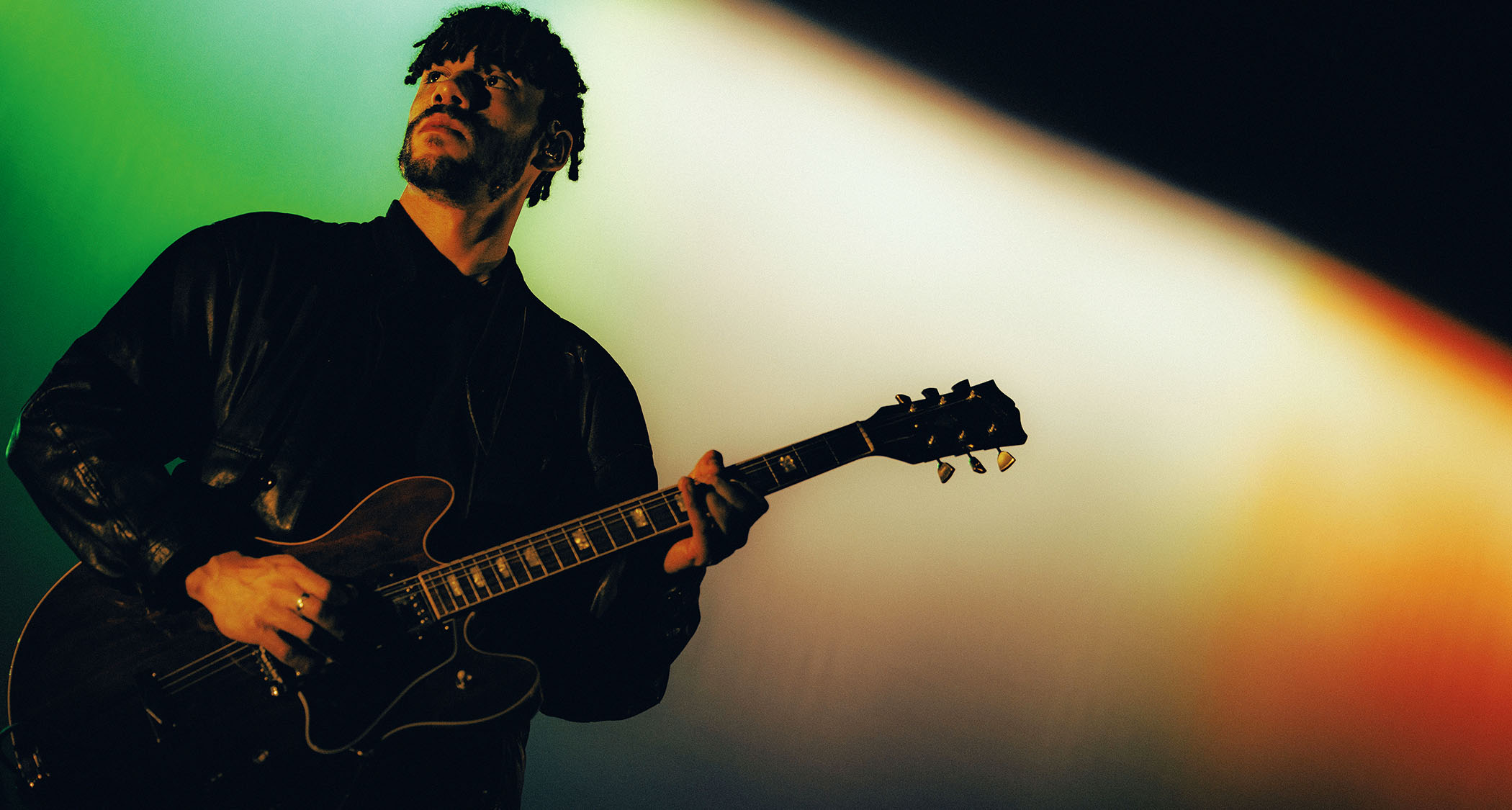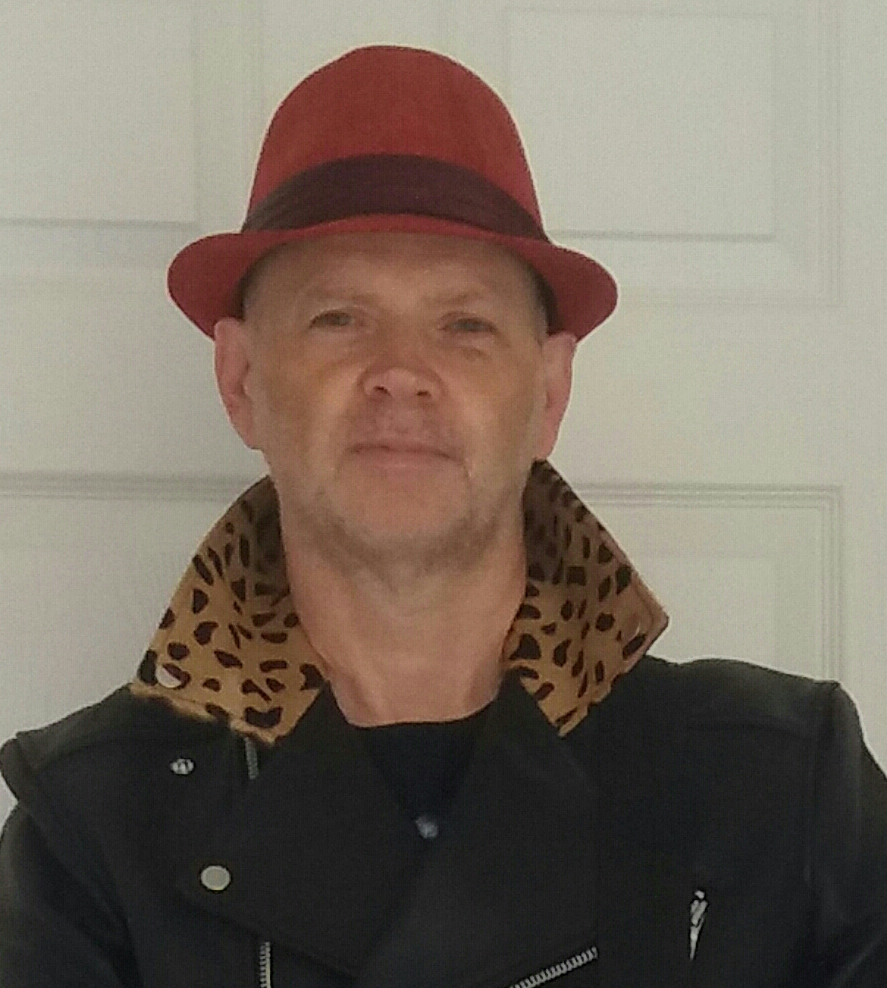“My grandma asked me why I was spending so much time pretending when I could just get a real guitar”: Inhaler guitarist Josh Jenkinson on how Miley Cyrus and Harry Styles’ producer expanded their sound – and why he just bought his first electric last year
Inhaler’s Josh Jenkinson is living proof that this generation’s guitar heroes actually got hooked on guitar courtesy of Guitar Hero – but he's not playing when it comes to tone and songwriting

All the latest guitar news, interviews, lessons, reviews, deals and more, direct to your inbox!
You are now subscribed
Your newsletter sign-up was successful
Irish rockers Inhaler have been on a steep upward trajectory since releasing their debut single, I Want You, in 2018 (having appeared on a various-artists release, Garageland, Vol. 1, the previous year).
Singer/guitarist Elijah Hewson, bass player Robert Keating and drummer Ryan McMahon had been playing together since 2012 – when they were just 12 years old – with guitarist Josh Jenkinson coming on board three years later at age 16.
His arrival coincided with the band’s determination to focus on writing their own music, establish themselves on the Irish club circuit and break into the U.K. market. They attracted immediate attention, especially when the news got out that Hewson was the son of U2’s Bono (not to mention the younger brother of Bad Sisters star Eve Hewson). For the band, that family connection wasn’t something they ever thought about or even tried to capitalize on.
“Growing up in Ireland in our mid-teens, it didn’t seem like anyone knew about that or cared,” Jenkinson says. “We’d been playing at a venue called Garageland in Dublin, getting regular gigs, and it was weeks before the promoter knew about Eli’s connection. He was amazed when someone told him. We’ve never really experienced much pushback, but then we’ve never taken advantage of Eli’s connections anyway.”
By the end of 2019, Inhaler had released three more singles and were creating a huge buzz, dropping another three singles the following year. There was a strong sense that they were deliberately biding their time, letting the anticipation build before releasing their debut album, It Won’t Always Be Like This, in 2021. Clearly, the plan paid off as they achieved the impressive feat of reaching Number 1 on the U.K. albums chart.
Momentum was maintained with the release of Cuts & Bruises in 2023, which saw them break into the U.S. alt charts and cemented their rep as one of the biggest bands in Europe. With the release of 2025’s Open Wide, the band’s music has reached a new level of depth and emotional maturity.
They mix a wide range of influences to create their own rock/indie crossover; they’re able to pull off the cool trick of maintaining rock credibility while not being afraid to embrace insanely memorable pop sensibilities.
All the latest guitar news, interviews, lessons, reviews, deals and more, direct to your inbox!
Jenkinson, who is, by his own admission, the least extroverted member of the band, was excited to talk to GW for a rare one-on-one interview.
Our producer, Tom Hull, has worked with some really big acts, like Miley Cyrus, Kings of Leon and Harry Styles, and he brought some interesting perspectives and ideas
In the press info for Open Wide, you describe it as almost feeling like you were making an album together as a band for the first time.
“We only had about three songs that existed in any form that we used, but even those were completely gutted and retooled for the record. Our producer, Tom Hull, has worked with some really big acts, like Miley Cyrus, Kings of Leon and Harry Styles, and he brought some interesting perspectives and ideas to the recording process. We’ve also acquired a lot of knowledge from making the first two albums in terms of what’s required in the studio, so it was almost as if it was our first record as conscious adults.”
What was the process for the band in terms of writing and prepping for the new record?
“We had a lot of time to think about what we wanted to do, and we spent hours jamming in the rehearsal room. Eli is a powerhouse at making great demos; we’re always amazed and enthused when he plays them. When you have someone with such a fantastic ability to come up with ideas, it’s not hard to find inspiration for parts that will complement what he’s done and suggestions for extra bits here and there.”
For your first album, you presumably already had a bunch of songs that were good to go. Did you find you had to start again for Cuts & Bruises two years later?
“We did have quite a few more songs on hand from the first album, but we’d actually grown a bit bored with them by then. We’d been playing them and living with them for so long that we wanted to write a bunch of new songs to really get ourselves fired up. Maybe when we do the retrospective box set in 10 years we’ll dig those old songs back out. [Laughs]”
What drove your need to play guitar?
“It was Guitar Hero, funnily enough. All my uncles played it, and I got addicted to it. I’d be going round to their houses all the time; eventually I got my own game console, and I couldn’t stop playing it. My grandma asked me why I was spending so much time pretending to play the guitar when I could just get a real guitar and try to learn how to actually play. [Laughs]
“Of course, there is no crossover from playing the game to actually playing a real guitar, so all those thousands of hours I put in didn’t really count for much, though maybe I guess it helped to get a sense of rhythm.”
“When I was 10, my grandma booked some lessons for me; I had a great teacher. The first day I went to him he just asked me what I wanted to play, and he did that trick of teaching me songs I knew from the start. I’d never done very well at school; I couldn’t buckle down to studying and doing homework. I was a bit like that with the guitar for a couple of years – the teacher would [give] me something to learn, but I wouldn’t even work on it until just before the lesson.
“I’m sure he knew I wasn’t putting the effort in, but then I really started to get into it. That’s when I started to make serious strides – once I realized that the more you put in, the more you get back out of it. When I really got interested, my uncle’s girlfriend gave me her Encore Strat copy and practice amp. I played that for years.”
![A portrait of Inhaler: [from left] Josh Jenkinson, Eli Hewson, Robert Keating and Ryan McMahon](https://cdn.mos.cms.futurecdn.net/TjvKf22K2V8ah3nRJJAksC.jpg)
How’d you hook up with the band?
“I met Eli on a night out and we got on well; he sent me a couple of demos on Facebook Messenger, and I couldn’t believe someone our age was coming up with stuff like that. I’d only ever messed around a bit in bands that played covers for fun. I could tell the band really wanted to do something significant.”
I’ve never been able to do that kind of thing, no matter how good I was at shredding on Guitar Hero
What were your go-to electric guitars and amps for the new album?
“At the start of 2024, I bought my first guitar that was with my own money – I’d been playing guitars people had given me or that I’d borrowed. I got a 1976 ES-335, which had a coil-splitter. It combined the best of everything I’d been looking for, as I used a Jaguar for the first album and a regular 335 for the second one, but with the splitter I could pretty much get all the sounds I was looking for from one guitar.
“I used a Vox AC30, and Tom the producer suggested I try a Roland JC-120. The mix of amps was such a great sound that I use them live now. Eli used a Les Paul, a Strat and an Epiphone Olympic from Rivington Guitars in New York City.”
How do you work out your parts with Eli?
“It’s pretty organic. He’ll usually play something that was on his demo, and I’ll instinctively go to a different place to find the part that complements his work. We don’t really sit down and plan; we just know what we need to do.”
Your playing is very song-focused. Do you ever feel the urge to break out the shred?
“No! I shudder every time I think about having to do something like that – I’m not that type of player, and I’ve never been able to do that kind of thing, no matter how good I was at shredding on Guitar Hero. [Laughs]”
It sounds like there are a lot of subtle influences at play in the band’s music.
“We like so many different bands between us, but we never want to do something that sounds like any of our influences. Our main focus is to try to ensure that we never do the same thing twice. We want to keep it fresh; we don’t want to ever feel stale and do something again just because it worked once before.”
How does the upped level of visibility feel?
“I’m not an extrovert in any way, but if someone sees me on the street and tells me they like our music, it does make me feel very happy. I guess if you’re a big celebrity, getting noticed could be a bit weird. We have a very strong, committed following – sometimes they’ll be camping outside the venue overnight, and then you start to worry that they’ll be OK. That’s a massive inspiration for us, though, to see that level of support.”
How did you find the transition from clubs to much larger venues?
When you’re in a band it’s always about the next record, not the one you’ve just done
“In terms of actually playing, the more you do the bigger venues, and the bigger the venues get, the more confident you feel. It’s a little more stressful in a small room, actually, but if it’s a venue where you can’t see the whites of their eyes, I feel like I can walk out anywhere and feel comfortable.”
What’s coming up next?
“We’ve got loads of shows through to the fall, but we’ve also got a massive hunger to make some new music. When you’re in a band it’s always about the next record, not the one you’ve just done.
“There’s no goal for us as a band other than us acknowledging that we’re a guitar band. If there’s any plan at all, it’s to turn up the guitars more with each album. But our first priority is to get out of our parents’ houses into our own homes. [Laughs]”
- Open Wide is out now via Polydor.
- This article first appeared in Guitar World. Subscribe and save.
Mark is a freelance writer with particular expertise in the fields of ‘70s glam, punk, rockabilly and classic ‘50s rock and roll. He sings and plays guitar in his own musical project, Star Studded Sham, which has been described as sounding like the hits of T. Rex and Slade as played by Johnny Thunders. He had several indie hits with his band, Private Sector and has worked with a host of UK punk luminaries. Mark also presents themed radio shows for Generating Steam Heat. He has just completed his first novel, The Bulletproof Truth, and is currently working on the sequel.
You must confirm your public display name before commenting
Please logout and then login again, you will then be prompted to enter your display name.






